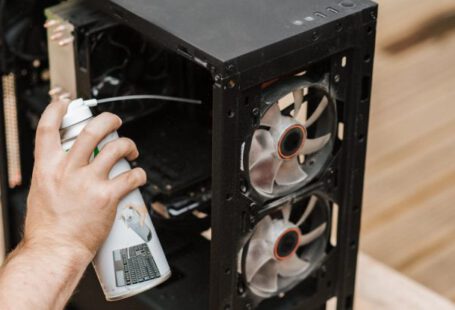Is your PC suddenly making strange noises that you’ve never heard before? Don’t panic just yet. Unusual sounds coming from your computer can be unsettling, but they don’t always indicate a major problem. However, it’s essential to address these noises promptly to prevent any potential issues from escalating. Here’s what you can do if your PC is making strange noises.
Identifying the Noises
The first step in addressing strange noises from your PC is to identify the type of sound you’re hearing. Computers can make various noises, each potentially indicating a different issue. Common sounds include buzzing, clicking, grinding, or whirring. Listening carefully to the noise can give you a clue about its source.
Buzzing sounds are often related to the fans inside your computer. It could indicate that a fan is malfunctioning or that there is an obstruction causing it to work harder. Clicking noises might be a sign of a failing hard drive, while grinding sounds could also point to a failing hard drive or a problem with the cooling fan. Whirring noises could indicate issues with the power supply or the fan.
Checking the Fans
Fans are crucial components of your computer system, as they help keep it cool and prevent overheating. If you hear buzzing or whirring noises, it’s a good idea to check your fans first. Make sure that the fans are clean and free from dust or debris that could be causing them to make unusual sounds. You can use compressed air to gently clean the fans and remove any obstructions.
If cleaning the fans doesn’t resolve the issue, you may need to replace a malfunctioning fan. Fans are relatively easy and inexpensive to replace, and doing so can help prevent your computer from overheating and potentially damaging other components.
Checking the Hard Drive
If you’re hearing clicking or grinding noises from your PC, the issue might be related to the hard drive. These sounds could indicate that the hard drive is failing or experiencing mechanical issues. It’s essential to address this problem promptly to prevent data loss and further damage to the drive.
You can check the health of your hard drive using built-in Windows tools or third-party software. If the hard drive is failing, it’s crucial to back up your data immediately and consider replacing the drive to prevent data loss.
Checking the Power Supply
Whirring noises coming from your PC could be related to the power supply unit (PSU). The PSU is responsible for providing power to all the components in your computer, and if it’s malfunctioning, it could cause various issues, including strange noises.
To check if the PSU is the source of the problem, you can try listening closely to pinpoint the noise. If the noise is indeed coming from the PSU, you may need to replace it to prevent further damage to your computer components.
Seeking Professional Help
If you’ve tried troubleshooting the issue yourself and the strange noises persist, it may be time to seek professional help. A computer technician can diagnose the problem accurately and recommend the best course of action to resolve it. It’s essential not to ignore unusual noises coming from your PC, as they could indicate underlying issues that need to be addressed promptly.
In Conclusion
Strange noises coming from your PC can be alarming, but they’re not necessarily a cause for panic. By identifying the type of sound, checking your fans, hard drive, and power supply, and seeking professional help if needed, you can address the issue promptly and prevent further damage to your computer. Remember, proactive maintenance and timely troubleshooting can help keep your PC running smoothly and efficiently.




